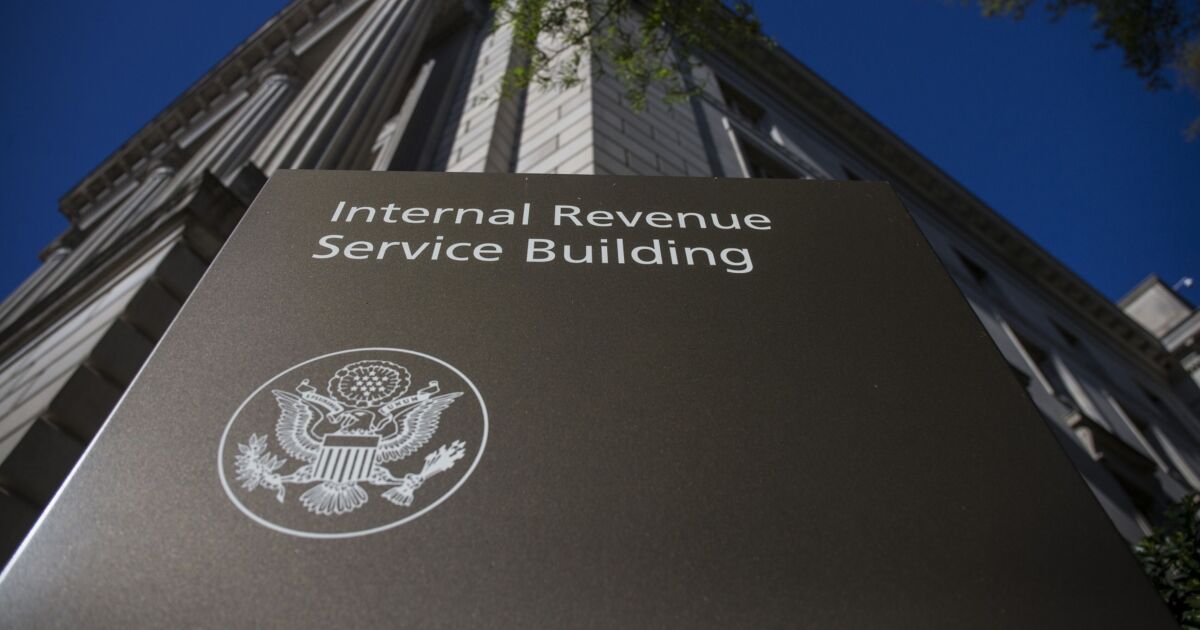U.S. businesses and wealthy universities scored major wins in the Senate Republicans’ version of President Donald Trump’s tax bill, while low-income Americans and clean energy providers are poised to be hit the hardest.
The Senate bill has already sparked backlash from various GOP factions and several provisions threaten the fragile coalition that squeaked the legislation through the House by a single vote last month.
The legislation could still be altered before it heads to the Senate floor, where Trump can afford to lose no more than three Republicans.
Here’s who’s winning and losing at this stage in the tax fight.
Winners
Manufacturers, banks
The Senate would make permanent three business tax deductions that the House bill would sunset after 2029. The tax breaks include the ability to use depreciation and amortization as the basis for interest expensing, the research and development write-off and a 100% bonus depreciation of certain property, including most machinery and factories. Banks could see a surge in lending as companies have more cash freed up to invest in projects.
Wealthy U.S. colleges
Private universities that have endowments of at least $2 million per pupil would pay an excise tax of 8%, a significant decrease from the devastating 21% rate that was included in the House proposal. That’s still up from the current tax of 1.4% but it’s a more survivable outcome for universities like Harvard, Yale, Princeton and MIT.
Chipmakers
The Senate bill calls for increasing an investment credit for semiconductor manufacturers to 30%. That’s up from the previous credit of 25%, giving chipmakers more incentive to spend on new facilities. Major beneficiaries of the tax credit have included Intel Corp., Taiwan Semiconductor Manufacturing Co., Samsung Electronics Co. and Micron Technology Inc.
An employee gives utensils to customers at a restaurant in New York
Tipped workers
The Senate bill makes good on one of Trump’s campaign promises of no taxes on tips and overtime — to a point. Senators would cap the amount of tipped wages that can be exempt at $25,000 per individual and overtime at $12,500 per individual and $25,000 per couple. Those deductions start to phase out $150,000 in income per person.
Foreign investors
Senators plan to delay and scale back a duty on investors in foreign countries with tax regimes that the U.S. deems unfair. The provision, informally called a revenge tax because it targets countries that impose digital services levies, would be delayed until 2027 for calendar-year filers. It then raises the levy by 5 percentage points each year until it hits a 15% cap.
Health insurers
The Senate abandoned an endeavor to cut costs in the Medicare Advantage program. The move will allow lawmakers to avoid backlash from trimming the popular health insurance program that is largely relied upon by retired Americans. It’s also good news for managed care companies which benefit from the program: Humana Inc. and UnitedHealth Group Inc.
Losers
Residents of high-tax states
Senators decided to put a placeholder state and local deduction cap of $10,000 in the draft bill, a drastic decrease from the $40,000 in the House-passed bill. The decision has already roiled House lawmakers from New York, New Jersey and California. Trump earlier told senators that he was open to lowering the SALT cap, according to a person familiar with the matter.
Clean energy
Senators went along with House efforts to quickly phase out a Biden-era tax credit for wind and solar. The bill also would eventually end investment and production tax credits for other types of power, including hydropower and geothermal.
Electric vehicle makers
Electric vehicle makers, including Tesla Inc and General Motors Co., will be hurt by the end of a consumer tax credit of as much as $7,500 for the purchase of electric cars. Tax credits for commercial and used electric vehicles will also be eliminated.
Low-income Americans
Federal funding for Medicaid would be cut in the Senate bill, shrinking the program that provides health-care to over 70 million Americans, including the financially vulnerable and those with disabilities. The cuts are more aggressive than the proposals in the House version of the bill, as part of lawmakers’ efforts to find ways to pay for the package.
Pass-through businesses
Owners or closely-held businesses, including partnerships and limited liability companies, had a widely-used deduction scaled back in the Senate version of the bill. The House draft called to increase a write-off for business income to 23% from the current 20%. The Senate plan just calls to preserve the 20% rate in the tax code. Advocates for the break say a bigger deduction is necessary to create parity between privately held businesses, which pay a top rate of 37%, and the 21% corporate rate.
Deficit hawks
The bill raises the debt ceiling by $5 trillion, an increase from $4 trillion in the House version.
SNAP recipients
After mulling a scaleback of cuts to federal food aid for the poor, the Senate version makes cuts to the Supplemental Nutrition Assistance Program as a way to help pay for the expensive spending package. The changes require state governments to cover more of the cost of federal food stamps received by their residents.


 Accounting1 week ago
Accounting1 week ago
 Economics1 week ago
Economics1 week ago
 Blog Post1 week ago
Blog Post1 week ago
 Personal Finance1 week ago
Personal Finance1 week ago
 Personal Finance1 week ago
Personal Finance1 week ago
 Personal Finance1 week ago
Personal Finance1 week ago
 Economics1 week ago
Economics1 week ago
 Finance1 week ago
Finance1 week ago












